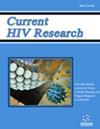Assessment of Knowledge and Concern of People Living with HIV Regarding Human Mpox and Vaccination
IF 1
4区 医学
Q4 IMMUNOLOGY
引用次数: 0
Abstract
Introduction: Mpox virus is an orthopoxvirus that causes the zoonotic infectious disease known as mpox. The disease can also spread from humans to humans. It can be transmitted through contact with bodily fluids, lesions on the skin, or internal mucosal surfaces. Method: The number of mpox cases increased during the COVID-19 pandemic. Early diagnosis and prompt management of mpox are critical in people living with HIV (PLHIV). In this study, a cross-sectional survey was conducted among PLHIV followed at the outpatient clinic between 20 April–20 August 2023. A questionnaire was used to assess the knowledge and anxiety levels of patients as well as their opinions about vaccination against mpox. The severity of symptoms in the past two weeks was assessed using the Generalised Anxiety Disorder 7-item scale. A total of 203 PLHIV were interviewed for this survey study. Result: The mean age was 39.37±11.93. The majority of them were male (86.7%), and 41.4% were men who have sex with men (MSM). Only 21 of the surveyed participants (10.4%) had a “good knowledge” score about mpox. The mean knowledge score on human Mpox was 2.05 (min:0-max:8), and 107 (52.7%) had a score of 0. Conclusion: The future study should focus on continuous education, promoting awareness through programs and establishing measures to successfully overcome identified variables that contribute to mpox pandemic understanding and attitudes. Applying the lessons learned from the COVID-19 pandemic will help the management of mpox virus.评估艾滋病毒感染者对人类麻疹病毒和疫苗接种的了解和关注程度
简介痘病毒是一种正痘病毒,可引起人畜共患传染病--痘痘。这种疾病也可在人与人之间传播。它可通过接触体液、皮肤上的病变或内部粘膜表面传播。传播方式在 COVID-19 大流行期间,水痘病例数量有所增加。对于艾滋病病毒感染者(PLHIV)来说,水痘的早期诊断和及时治疗至关重要。在这项研究中,我们对 2023 年 4 月 20 日至 8 月 20 日期间在门诊就诊的艾滋病毒感染者进行了横断面调查。调查问卷用于评估患者的知识水平和焦虑程度,以及他们对接种麻腮风疫苗的看法。过去两周的症状严重程度采用广泛性焦虑症 7 项量表进行评估。这项调查研究共访问了 203 名艾滋病毒感染者。结果如下平均年龄为(39.37±11.93)岁。其中大部分为男性(86.7%),41.4%为男男性行为者(MSM)。只有 21 名受访者(10.4%)对麻风腮病毒的了解程度为 "良好"。关于人类水痘知识的平均得分为 2.05(最低:0-最高:8),107 人(52.7%)的得分为 0:今后的研究应侧重于持续教育,通过各种计划提高人们的认识,并制定措施,以成功克服已确定的导致人们对水痘大流行的认识和态度的各种变量。应用从 COVID-19 大流行中吸取的经验教训将有助于对麻疹病毒的管理。
本文章由计算机程序翻译,如有差异,请以英文原文为准。
求助全文
约1分钟内获得全文
求助全文
来源期刊

Current HIV Research
医学-病毒学
CiteScore
1.90
自引率
10.00%
发文量
81
审稿时长
6-12 weeks
期刊介绍:
Current HIV Research covers all the latest and outstanding developments of HIV research by publishing original research, review articles and guest edited thematic issues. The novel pioneering work in the basic and clinical fields on all areas of HIV research covers: virus replication and gene expression, HIV assembly, virus-cell interaction, viral pathogenesis, epidemiology and transmission, anti-retroviral therapy and adherence, drug discovery, the latest developments in HIV/AIDS vaccines and animal models, mechanisms and interactions with AIDS related diseases, social and public health issues related to HIV disease, and prevention of viral infection. Periodically, the journal invites guest editors to devote an issue on a particular area of HIV research of great interest that increases our understanding of the virus and its complex interaction with the host.
 求助内容:
求助内容: 应助结果提醒方式:
应助结果提醒方式:


